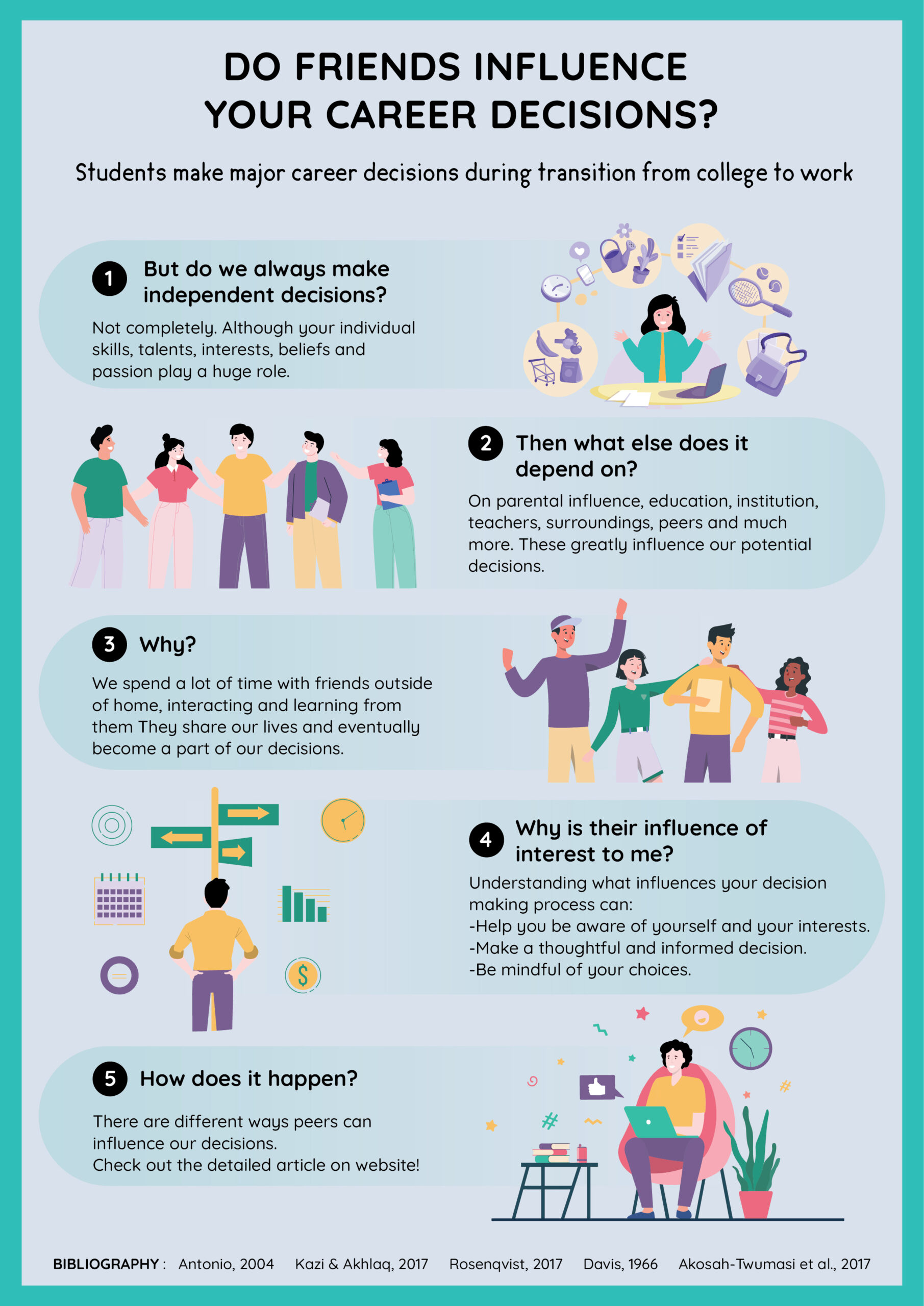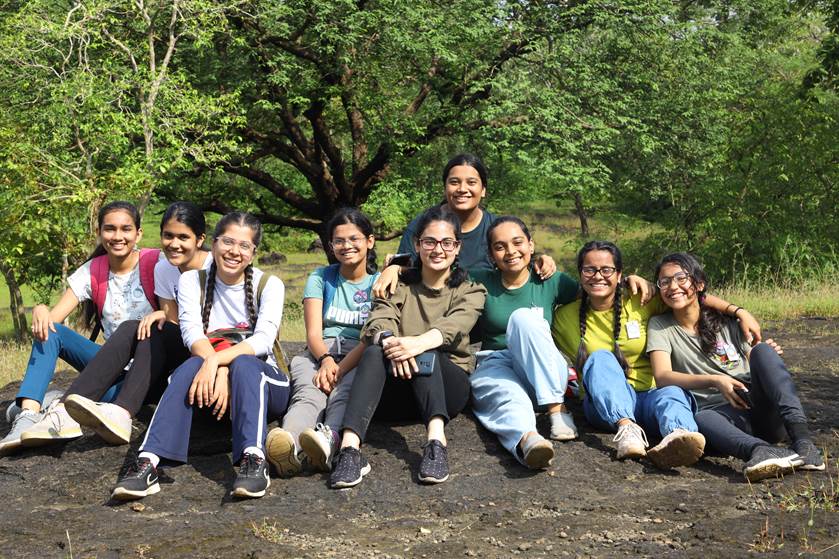– Diya Jain
Students are usually expected to work after college. This progression from a college environment to a work environment requires many discussions and intensive preparations. One has to make major career and future occupational and educational decisions during this transition (Krake, 2002). Making career decisions at the end of school or college is a defining moment in every person’s life. These are the decisions that will stick with them for a longer period of time, that will define what they do with their future. Having to make these decisions, however, is not based on the individual solely. External factors like parental influence, education, surroundings, and peer influence play a huge role in determining what the individual will potentially decide. These influences act along with the individual’s internal skill, interests and beliefs (Kazi & Akhlaq, 2018). Among all, we will look at the influence of peers on youth’s career decisions.
Peers are the group of people we sit and stand with. They are whom we share the majority of our life outside home with. Our peer groups are whom we interact with and learn from the most. Essentially, peer groups of a person are groups with which one socializes in one or more environmental settings. There are norms to these groups which can influence an individual’s decision heavily (Antonio, 2004). Understanding the effect of peer influence on youth’s career decisions is an important aspect to look at, to be aware of the same and make an informed decision. If the individual makes a decision after being influenced by their peers, they might not know what else was out there for them, what they actually wanted to do and if their decision was even right for them. If they do not have an interest in the decision they take, they might develop a low self-esteem and suffer through confidence and self-image issues. Thus, to make an informed decision, after being aware of the external influences is important for an individual’s psychological health and future well-being and peers are a big part of them (Kazi & Akhlaq, 2017).
There are various ways in which peers can exert their influence on youth’s career decisions. One of the major ways in which peer influence is significant is its ability to provide people with a sense of comfort and acceptance. People often find it easier to stick to their old friends and make new ones along with them in the future. This, along with developing a sense of belonging to the group by following the group’s likes, is one of the major reasons why people
choose to pursue careers which their peers are following as well (Rosenqvist, 2017). Others, who are confused about their future and do not have much exposure to what all they could possibly pursue, tend to follow the general trend they see among their peers (Rosenqvist, 2017). In addition to that, peers are often found to be compared to, academically, by the individuals making the decision. One would be less motivated to follow the stream the peers who are higher achievers than them, do. This is so because they develop less confidence in the subject and believe they would be less likely to be successful in the future as compared to the higher achieving peers (Davis, 1966). Approval by the peer groups is also important for the individual to protect themselves from unwanted feelings of isolation and loneliness. This is yet another reason for them to take up decisions that conform to the peer group’s norms or are socially accepted by them (Rosenqvist, 2017). Moreover, people from collectivistic cultures are more likely to base their decisions on the influences and external factors of their in-group which consists of their peers along with their parents and others (Akosah-Twumasi et al., 2017).
Having understood the role of peers in influencing one’s career and occupational decisions, one must understand how to make a wiser decision, which is not very heavily influenced by other external forces. One can seek help from a career counsellor when confused. While peer influence can not totally be avoided, one can at least be aware of the same and choose their priorities accordingly. Thus, knowing about these influences can help an individual
make an informed decision which would ultimately be their own.

REFERENCES:
- Akosah-Twumasi, P., Emeto, T.I., Lindsay, D.,Tsey, K. and Malau-Aduli, B.S. (2018) A Systematic Review of Factors That Influence Youths Career Choices—the Role of Culture. Front. Educ. 58(3). doi: 10.3389/feduc.2018.00058
- Antonio, A.L. (2004). The Influence of Friendship Groups on Intellectual Self-Confidence and Educational Aspirations in College. The Journal of Higher Education, 75(4), 446–471. http://dx.doi.org/10.1080/00221546.2004.11772267.
- Davis, J.A. (1966). The Campus as a Frog Pond: An Application of the Theory of Relative Deprivation to Career Decisions of College Men. American Journal of Sociology,72, 17–31.
- Kazi, A.S. & Akhlaq, A. (2017). Factors Affecting Students’ Career Choice. Journal of Research and Reflections in Education, 11(2), 187–196.
- Kracke, B. (2002). The role of personality, parents and peers in adolescents career exploration. Journal of Adolescence, 25, 19–30, doi:10.1006/jado.2001.0446.
- Rosenqvist, E. (2017). Two Functions of Peer Influence on Upper-secondary Education Application Behavior. Sociology of Education, 91(1), 72–89. DOI: 10.1177/0038040717746113.


